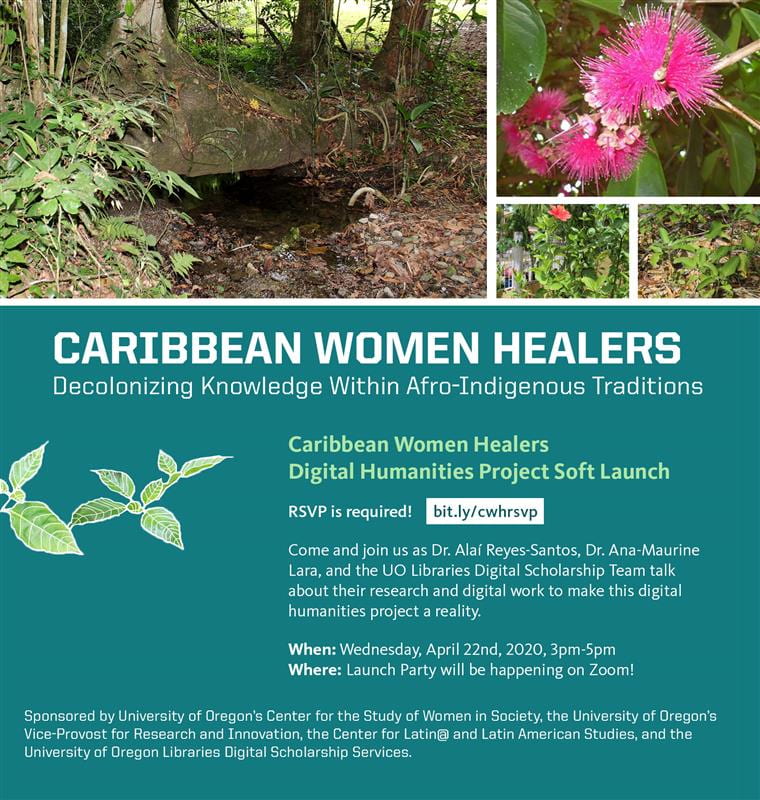On April 22, the Caribbean Women Healers: Decolonizing Knowledge in AfroIndigenous Traditions Digital Humanities Project launched the first phase of their website to an enthusiastic online audience. The project’s social media reached around 5,000 people in one day and RSVPs to the Zoom launched after only five days of publicity were in the hundreds and from all over the world, exceeding all expectations.
The digital humanities project was developed by assistant professor Ana-Maurine Lara of women’s, gender, and sexuality studies; associate professor Alai Reyes-Santos of indigenous, race, and ethnic studies and conflict and dispute resolution; and the UO Libraries Digital Scholarship Center, led by Franny Gaede.
In a statement to CSWS, Reyes-Santos said, “The training and Digital Humanities expertise offered by UO Libraries staff enabled us to produce a site accessible in different countries, for people with different abilities to see and listen, and content in two languages that meets academic expectations for digital scholarship in faculty evaluation and promotion. Q&A demonstrated that audiences are deeply invested in digital humanities project engaging community-based traditional ecological and medicinal knowledge in the time of COVID-19. Student feedback was overwhelmingly positive and engaging.”
The project team is now working on phase two of the project and an NEH application for an emergency response to the pandemic.
Reyes-Santos continued, “In light of the current pandemic and questions during the launch, we are applying for NEH funding to undertake, edit, and post bilingual interviews with the healers featured that document their current responses to the pandemic in Caribbean communities in the islands and the Pacific Northwest; develop a syllabus for humanities college courses that combine literature, videos, social media, ethnobotanical resources, and the website to discuss how this pandemic is engaged by Caribbean communities; and host an online presentation of the site that better enables faculty to teach the syllabi or some of its components in their ongoing courses in AY 2020-2021. The website proves to be an engaging resources and foundation to keep students engaged in digital humanities scholarship pertinent to current debates about how to best approach the pandemic across cultural contexts.”
Continued work on the project is possible though the institutional support they received from the Center for the Study of Women in Society, the University of Oregon’s Vice-Provost for Research and Innovation, and the Center for Latino/a and Latin American Studies.


